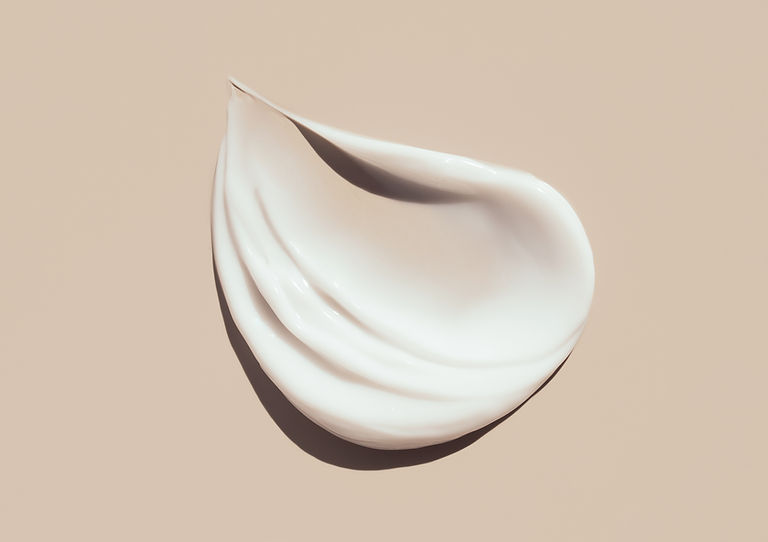Mesotherapy - the French Connection
- Aggie Singh
- May 12, 2022
- 4 min read
Updated: Apr 10, 2023

Mesotherapy - one of the most popular advanced skin rejuvenation treatments, dates back centuries. To understand its origins we tuned in to one of the professional webinars by the skincare guru Andrew Hansford where he elaborates on the history of microneedling. The first annotation reaches back to 100 BC when shepherds would scratch their sunburned skin with aloe plant thorns to then soothe the skin with natural aloe gel. The whole point of skin scratching with the plant (now known as professional mesotherapy) was to get soothing aloe gel under the surface of the skin. Now, years later and with much more advanced research into needling, we are able to provide one of the most natural skin healing treatments.
Back in 1952 doctor, Michel Pistor invented this simple but revolutionary technique - named Mesotherapy. His research has led to the creation of a University Diploma in Mesotherapy in France. Here comes our 'French connection' with this amazing treatment. https://mi-medicalinnovation.com/en/content/18-doctor-michel-pistor
Today, we are on the mission to debunk some of the needling myths like:
- it has got to be bloody
- it hurts
- anaesthetic is a must
- hideaway post-procedure
First of all, let's find out what are the two different types of mesotherapy treatment?
Mesotherapy can be performed by a gun/pen-like device, for example, Dermapen ® or a single needle syringe. Both are an amazing addition to most skincare regimens.
Good quality pen-based mesotherapy involves the use of sterile cartridges equipped with around 12-16 titanium microneedles. Those tiny needles pierce through the top layer of the skin (epidermis), creating microchannels for easy flow of hydrating hyaluronic acid or sterile vitamin cocktails.
For greater results, Aggie Singh, skincare consultant at Silesiana Cleethorpes suggests booster vitamins in a vial, packed with amino acids and active ingredients.

Microneedling mesotherapy is a very precise treatment with controlled trauma to the skin and kickstarts the new collagen production process. When we say controlled, it means the desired needle depth is set through the pen, usually from a digital screen. Once at the right depth, our system will immediately respond by sending signals into the skin through the growth factors. How clever our skin is!
In a nutshell within 21 days from the needling procedure, new collagen will start forming.
On the contrary, single-needle mesotherapy is mostly about skin health. Think all those needed vitamins, and amino acids for a healthy, radiant look. To be fair, you can apply potions and lotion onto your skin, and don't get me wrong it's important to protect the upper skin layer from transepidermal water loss, but it will not change anything on a cellular level.

Single needle mesotherapy aka 'nappage' is a superficial transdermal procedure, therefore minimal discomfort during treatment and some pinpoint bleeding may appear but forbid, not bucket loads!
When comparing both mesotherapy treatments think meso pen equals
collagen boost and single needle skin health/radiance. Both can be combined for a greater result as a fast track treatment but can be performed in a separate session as well. All depend on desired results, time and budget.
With both treatments, single needle or microneedling there is no need for numbing cream like for example Emla. First of all, an anaesthetic will cause a longer healing process. Second of all microneedling does not need to be performed deep. Superficial mesotherapy will have a great effect on skin growth factors. These little messengers as we like to call them, know exactly what to do once triggered. Therefore there is no need to numb and no need to bleed. A gentle pinpoint bleeding is fine but not a 'bucket' of blood under the couch! Think Kim Kardashian and her Insta famous PRP blood facial. No! No! And no!
What can be treated with mesotherapy?Mesotherapy is a very versatile treatment. Most commonly treats signs of premature ageing, glycation, sun damage, large pores, dark eye circles, as well as perioral lines. It also helps with skin conditions like rosacea, pigmentation, and acne. Mesotherapy is a treatment easy combined with other procedures.
Does it hurt? Mesotherapy facial is not considered a painful experience according to Professional Beauty magazine:
"Clients may experience a mild tingling sensation on the skin for up to 48 hours.”
Areas like the forehead or bridge of the nose will be more sensitive to touch due to less fat tissue in those particular zones. The treatment itself lasts about 10 minutes. Tip: holding on to a little squeeze toy can help take your mind off the procedure and reduce stress and anxiety.
Will I have to take a day off post-procedure? As mentioned earlier, mesotherapy facial can be performed superficially, therefore minimal to no downtime. You may feel slight skin tightening post-procedure and on occasion a tiny micro scabbing. Moisturiser is your best friend.
At Silesiana Cleethorpes aesthetic treatments end with medical SPF by Dermapenworld Cover Recover. Therefore, the skin won't show signs of redness and 48 hours later you can go back to your regular day-to-day skincare regimen.
When will I see the results? This is a very individual question. Everyone's skin reacts differently depending on skin hydration level, texture, skin condition and more. A qualified and experienced aesthetician would be able to answer this question during the initial consultation. Usually, four sessions spaced out 4-6 weeks apart it's a great start. Not to forget about home care routine, based on active ingredients carefully selected by the professional staff. It goes hand in hand with in-salon treatment.

Finally, what to look for when booking needling treatment? Safety always comes first. Research about the treatment, clinic and aesthetician. Double-check their training history to at least Beauty College NVQ 3 level (UK). Not sure? Ask. Licenced and registered therapists will be happy to talk about their accomplishments and achievements. Last but not least reserve a consultation and enjoy your skincare journey.
Aggie Singh
'skincare consultancy'
www.silesiana.co.uk

-01.jpg)



Comments